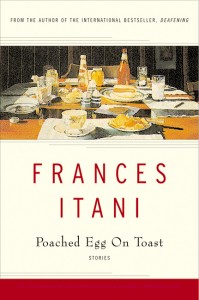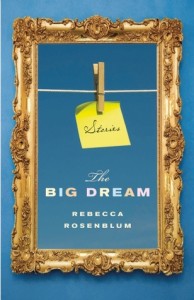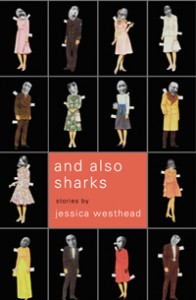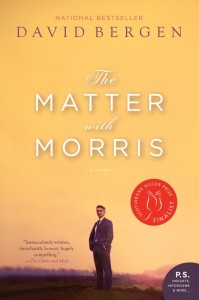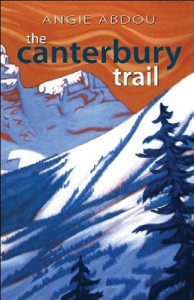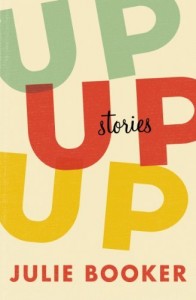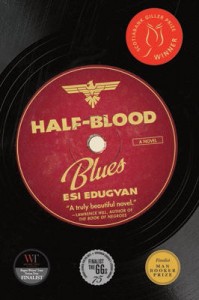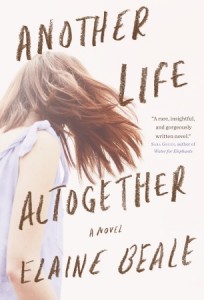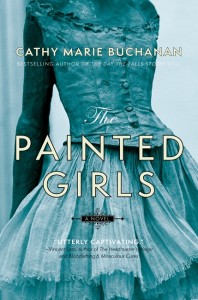 Like so many of my posts, I’ll start off with a confession–ever since coming back to work after mat leave almost eighteen months ago now, I’ve been woefully behind on my “work” reading. Keeping abreast of HCC books, etc., before publication was one of the perks of my job–reading books before they’re on the shelves is kind of like the ultimate spoiler to me, and I can’t resist a galley at the best of times, and for my favourite authors, I usually even read them in manuscript, that’s just how I roll.
Like so many of my posts, I’ll start off with a confession–ever since coming back to work after mat leave almost eighteen months ago now, I’ve been woefully behind on my “work” reading. Keeping abreast of HCC books, etc., before publication was one of the perks of my job–reading books before they’re on the shelves is kind of like the ultimate spoiler to me, and I can’t resist a galley at the best of times, and for my favourite authors, I usually even read them in manuscript, that’s just how I roll.
To further confuse things, it used to be my job, as a digital marketing peep, to know and be able to talk about various titles, you know, building buzz, that sort of thing. Now that I work exclusively in ebooks, I never seem to get on top of our books until they are actually published. This brings me to The Painted Girls. I didn’t read it in manuscript or galley format–and I didn’t read our ebook, I actually took the physical book with me, a true break from my life, on my trip to New York a couple of weeks back. I read 90% of it while away, and then it took me almost two weeks to finish it as work reading (Bonnie Burnard’s Casino and Other Stories [#5]) and my January theme book, When the Body Says No, #6 crowded around.
Annnywaaay, told from the perspective of Marie and Antoinette van Goethem, the story follows the two sisters as they make their way in the world of La Belle Époque Paris at a moment in time when lives could change in an instant if a young girl, a petit rat, a ballerina, was chosen for the main stage of the Opéra, and even more if they caught the fancy of an abonné, a rich patron whose roses were always accompanied by other favours. Wrapped around them like the tulle of their practice skirts is the story of a band of ruffians, criminals who Antoinette falls in with, and Charlotte, their youngest sister, who eventually becomes a beloved fixture of the ballet.
For Marie, a young girl of just thirteen when the story opens, dance is the way up from impoverished existence, a world where hard work could change the circumstances defined by a dead father and an absinthe-addicted mother. She catches the eye of Degas, infamous now for his portraits, portrayals of young ballet girls, and begins to model for him, eventually becoming the inspiration for his sculpture, “Little Dancer, Aged Fourteen.” You would think, with all of these opportunities, coupled with Marie’s own amazing and intense work ethic, that ballet would be the making of her. As it is with most good stories, opportunity is always coupled with some sort of adversity, and Marie’s path becomes obscured by the pressures of her own moral compass as it becomes tested with the new world she inhabits.
For Antoinette, the dance has already been spoiled, and her world consists of hard scrabble to find her way, taking a terribly wrong turns after falling in love with a ruffian named Émile, whose story comprises the second historical vein running through the novel–as he’s on trial for murder. Antoinette has always been the glue that holds the girls together–pulling their hair taut into buns, mending their skirts, stealing their bread, and when her love for Émile challenges the tender bonds of family, all three sisters are tested, and no one comes out unscathed.
At its heart, one would imagine this is a book about ballet, and it is, Buchanan, herself a former dancer, writes confidently and accurately about the art–it’s hard to do, dance in novels and films is often trivialized or sensationalized (Black Swan, anyone? bleech). The other novel that I read recently that presented the most honest portrayal of dance I’d ever read was Zelda Fitzgerald’s Save Me the Waltz, a terrifically underrated gem. The Painted Girls does an exceptional job with the ballet portion of the story, it feels inherent and right, and it reminded me, like so many other girls, of a time in my life when I was emboldened by pink tights and plain black leotards, feet bruised and insteps aching, stretching myself to the limits even for a basic plié. I was never meant to be a ballerina, however, modern dance was always more for me, and so I felt for Antoinette, who wasn’t quite right for the Opéra, who struggled to find herself in a world insistent upon sending her in the wrong direction. But I think this is a book about sisters, about the bonds of family, and about the lengths that you’ll go to save someone you love–that’s what it becomes for Marie, that’s what it becomes for Antoinette.
Like Girl with a Pearl Earring, Buchanan expertly weaves art, experience, history, with the very human experiences of life and love. Breathing history and backstory seamlessly into the narrative, Buchanan creates a book that’s both rich and vivid, as beautiful as its cover. Highly recommended.
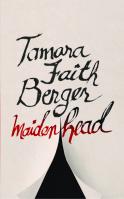 I’m not sure what to say about Tamara Faith Bergen’s Maidenhead. I know it was hard for me to read, something akin to watching that film Thirteen where you know a world exists like this, but it’s just perhaps too real. Myra, a relatively inexperienced sixteen-year-old “meets” Elijah (and I say that in quotes because he was actually hunting her or someone like her, young, virginal, easy to be preyed upon) while on holiday in Key West. What follows is a story of sexual awakening coupled with some very extreme emotional issues as Myra’s mother leaves the family, and her father retreats into the basement, emerging red-eyed and downtrodden. Like many smart teenagers with little adult supervision, she’s back and forth between drugs, sex, and this Elijah character who doesn’t necessarily take advantage of her at first (as she’s ready and willing to be with him)… but, I don’t even know. She’s young, wild, and knows her own mind, but the situation, as much as it frees her, is dangerous.
I’m not sure what to say about Tamara Faith Bergen’s Maidenhead. I know it was hard for me to read, something akin to watching that film Thirteen where you know a world exists like this, but it’s just perhaps too real. Myra, a relatively inexperienced sixteen-year-old “meets” Elijah (and I say that in quotes because he was actually hunting her or someone like her, young, virginal, easy to be preyed upon) while on holiday in Key West. What follows is a story of sexual awakening coupled with some very extreme emotional issues as Myra’s mother leaves the family, and her father retreats into the basement, emerging red-eyed and downtrodden. Like many smart teenagers with little adult supervision, she’s back and forth between drugs, sex, and this Elijah character who doesn’t necessarily take advantage of her at first (as she’s ready and willing to be with him)… but, I don’t even know. She’s young, wild, and knows her own mind, but the situation, as much as it frees her, is dangerous.